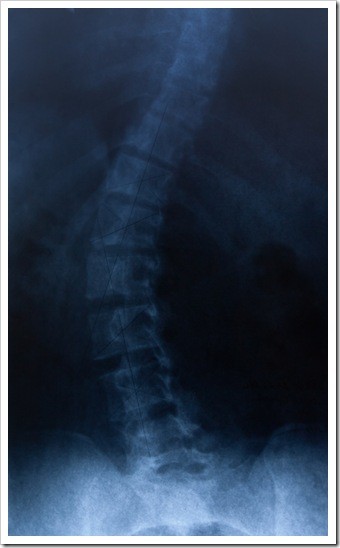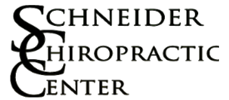 Scoliosis begins in childhood, and describes a condition in which the spine curves sideways causing stiffness and pain. It is known as an idiopathic disease, meaning the cause of it is unknown. Only 2% of the population is affected by scoliosis, and it is more common in females. Detected early, treatment for scoliosis will prevent it from getting worse over time.
Scoliosis begins in childhood, and describes a condition in which the spine curves sideways causing stiffness and pain. It is known as an idiopathic disease, meaning the cause of it is unknown. Only 2% of the population is affected by scoliosis, and it is more common in females. Detected early, treatment for scoliosis will prevent it from getting worse over time.
The sideways curve in the spine of a scoliosis sufferer takes an “S” or “C” shape, and is possible because the vertebrae can rotate at the thoracic level of the spine, causing a hump near the rib cage and making the waist or shoulders uneven. A curve of more than 60 degrees is considered serious, and, unlike with the normal forward-back curvature of the spine, working to correct your posture will not help this sideways curvature.
Degenerative diseases of the spine related to age can also sometimes cause scoliosis. In the case of osteoporosis, the softening of the bones in older people can cause the vertebrae to bend out of shape, creating either a scoliotic curve or kyphosis (round back). Proper and prompt treatment for scoliosis is essential, because if left to progress, it can cause severe back pain, deformity, and difficulty breathing.
Chiropractic and scoliosis
Chiropractic care is helpful in improving scoliosis. Your doctor of chiropractic will assess your overall health, lifestyle factors, examine the state of your spine, and discuss symptoms. A medical history will be taken to identify any events that may have triggered the condition, or that may be making it worse.
Assessing scoliosis usually involves the Adam’s Forward Bending Test, which is used by many schools in physical education classes. Chiropractors also use this, which simply involves the person bending at the waist as the spinal alignment is checked. Any abnormal prominence or hump is a sign something is amiss. Leg length is also measured to determine if they are even, and a range of motion test measures mobility at the waist. If needed, other medical professionals will be called in to help with treatment.
Treatment may mean wearing an orthopedic brace to prevent the curve from worsening, but which does not limit physical activity. Applying moist heat can be helpful for pain relief. If extended observations show that a brace is not helping, then, in extreme cases, surgery may be recommended. This is known as spinal fusion and instrumentation, and involves the insertion of rods and hooks to help align the spine and prevent further curving.
It is important that regular chiropractic visits are made so that the progression of the condition can be observed, and the appropriate treatment options applied in timely fashion. Treatment aside, physical therapy is often a very useful tool to increase muscle strength and mobility.
⇐ Sciatica Slipped Disc ⇒
